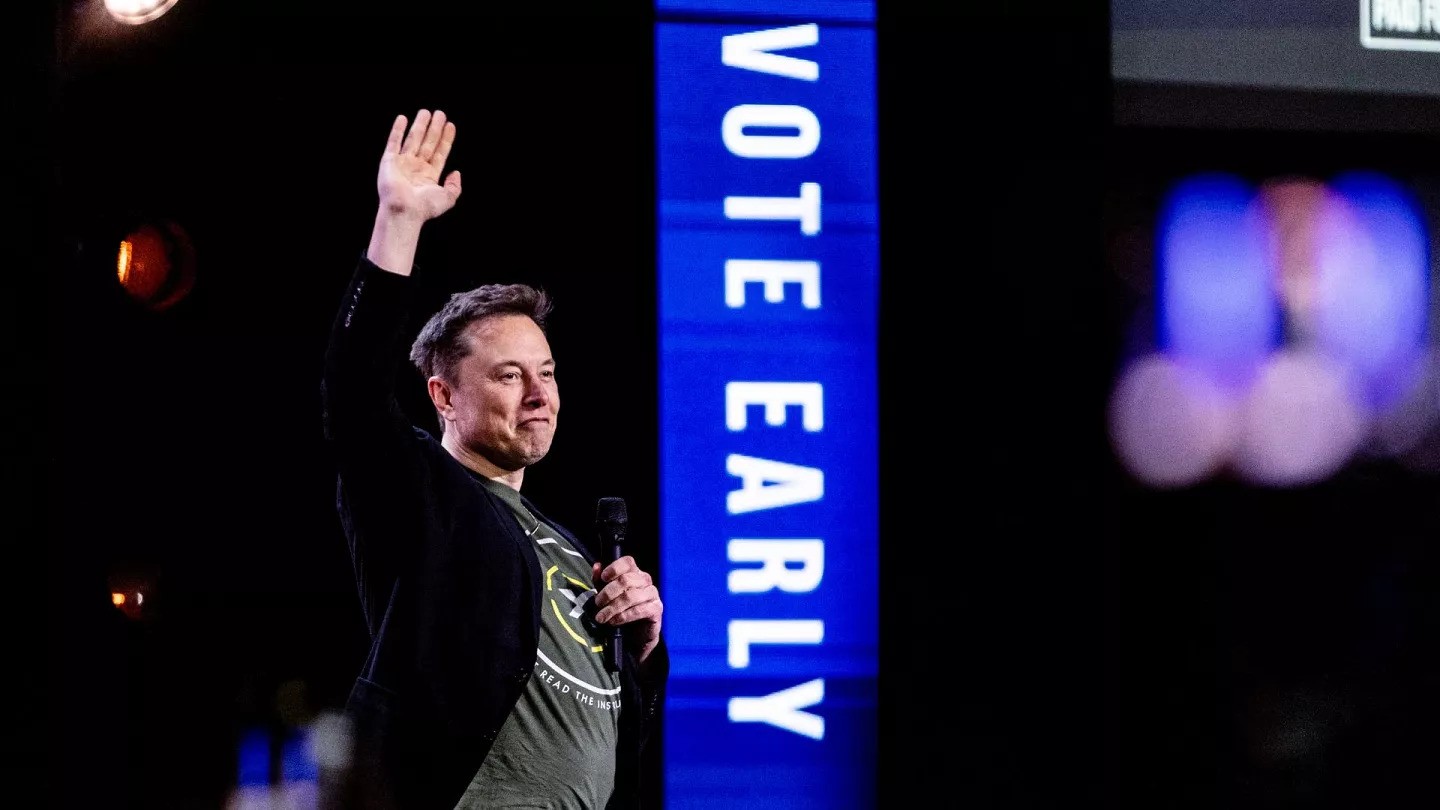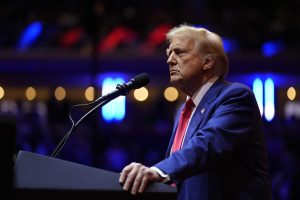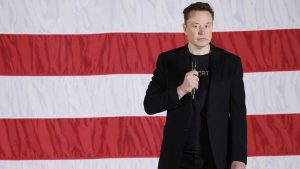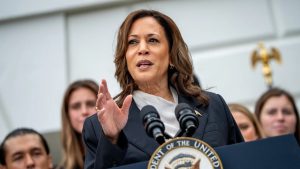Elon Musk’s $1 Million Giveaway Faces Legal Scrutiny: Is It Crossing the Line?
USA NEWS – Elon Musk, a man no stranger to headlines, is once again making waves—this time, for a $1 million sweepstakes aimed at encouraging voter registration in key battleground states. Musk’s political action committee (PAC), known as America PAC, recently launched the giveaway, promising a substantial prize to those who sign a petition in support of First and Second Amendment rights. However, this initiative has sparked concern from election law experts and even drawn the attention of the U.S. Department of Justice (DOJ).
While Musk’s influence in the business and technology sectors is well established, his increasing involvement in political campaigns, particularly in support of former President Donald Trump, has raised questions about the legality of some of his actions. In this case, the DOJ has issued a warning, suggesting that Musk’s efforts may violate federal law. So, what exactly is happening with Musk’s $1 million giveaway, and how could this potentially affect the upcoming election?
The Rise of America PAC and the $1 Million Sweepstakes
In recent years, Musk has become more vocal about his political affiliations, expressing support for controversial figures and causes. In the 2024 election cycle, Musk has aligned himself with Donald Trump, publicly endorsing the former president and contributing millions to his campaign. His latest initiative through America PAC, however, has raised eyebrows for potentially crossing legal boundaries.
The premise is simple: register to vote, sign a petition supporting constitutional freedoms, and be entered into a sweepstakes to win $1 million. Musk announced this giveaway at a Trump campaign event in Harrisburg, Pennsylvania, where he proudly declared his intention to encourage voter participation in key swing states like Pennsylvania, Michigan, and Arizona. The goal, according to Musk, was to get “over a million, maybe 2 million” voters registered and active ahead of the 2024 election.
Yet, despite the seemingly straightforward mission, election law experts were quick to point out that offering financial incentives in exchange for voter registration is problematic. Federal law prohibits paying individuals to register to vote, raising immediate red flags about the legality of Musk’s sweepstakes.
The DOJ’s Involvement: Is the Giveaway Legal?
Concerns about Musk’s initiative reached the Justice Department’s Public Integrity Section, which investigates potential violations of election law. According to sources familiar with the matter, the DOJ sent a warning to America PAC, cautioning that the sweepstakes could be in violation of federal statutes prohibiting payments for voter registration.
The PAC’s messaging had initially centered around offering a prize to those who signed a petition advocating for the protection of First and Second Amendment rights. However, in order to sign the petition and be eligible for the prize, participants had to be registered voters in specific battleground states. This connection between voter registration and financial reward is what prompted legal concerns.
To complicate matters, Musk’s team initially dismissed the concerns, with Musk himself taking to his platform, X (formerly known as Twitter), to express surprise at the backlash. In response to Pennsylvania Governor Josh Shapiro, who criticized the giveaway and called for legal scrutiny, Musk sarcastically questioned why such an initiative would be “deeply concerning.”
However, legal experts argue that Musk’s intentions may not be as innocent as they seem. The combination of financial incentives and voter registration, even if indirect, runs the risk of violating election laws designed to protect the integrity of the voting process.
Tweaking the Messaging: A Legal Loophole?
In response to mounting pressure and scrutiny, America PAC quickly altered its messaging surrounding the sweepstakes. Instead of framing the $1 million as a prize, they began describing it as “payment for a job.” Social media posts from the PAC claimed that winners would be selected to serve as spokespersons for America PAC, promoting pro-Trump messages and ideals. This reframing of the giveaway was intended to address the legal concerns raised by the DOJ and other election law experts.
But did this shift in messaging actually resolve the underlying legal issues? According to experts, the answer is no. The fundamental problem remains: only registered voters in swing states are eligible to enter the sweepstakes. This condition suggests that the PAC is still effectively rewarding individuals based on their voter status, which could still be interpreted as a violation of election law.
Several legal experts interviewed by CNN noted that despite the PAC’s attempts to rebrand the prize as a job payment, the fine print on their website remained unchanged. Participants still had to be registered voters in battleground states like Arizona, Michigan, Georgia, and Pennsylvania to be eligible for the $1 million prize. This discrepancy between the public messaging and the official rules of the sweepstakes leaves the door open for continued legal challenges.
The Broader Implications for Voter Registration Efforts
Musk’s controversial sweepstakes highlights the fine line between promoting voter engagement and violating election laws. While initiatives that encourage voter participation are generally viewed as positive, offering financial incentives can undermine the integrity of the process.
Federal laws against paying individuals to register to vote exist for a reason: to ensure that elections remain fair and free from manipulation. By linking financial rewards to voter registration, even indirectly, campaigns risk skewing the process and influencing individuals to register for reasons other than their civic duty.
Musk’s America PAC is far from the first organization to face legal scrutiny for its voter registration efforts. Historically, both Democratic and Republican campaigns have faced similar accusations when attempting to increase turnout in critical elections. However, the scale of Musk’s wealth and influence, combined with his unflinching support for Trump, has elevated this particular case to national attention.
Musk’s Political Influence: A Double-Edged Sword?
Musk’s increasing involvement in political campaigns raises important questions about the role of billionaires in shaping democracy. With his vast wealth and global platform, Musk wields considerable influence over public opinion. His ability to mobilize millions of followers through social media, combined with his financial resources, gives him a unique position in the political landscape.
However, this influence is not without controversy. Critics argue that Musk’s actions, such as the $1 million sweepstakes, blur the line between promoting democratic engagement and manipulating the electoral process. By offering financial incentives tied to voter registration, Musk risks undermining the very democratic principles he claims to support.
As the 2024 election approaches, Musk’s political activities will likely continue to be scrutinized by both legal experts and the public. Whether or not his America PAC can successfully navigate the legal challenges posed by the DOJ remains to be seen. What is clear, however, is that Musk’s involvement in the election is far from over.
A High-Stakes Gamble
Elon Musk’s $1 million sweepstakes aimed at increasing voter registration has drawn significant attention—not all of it positive. While Musk’s intentions may be to promote engagement in the democratic process, his methods have raised serious legal questions. The DOJ’s warning and the continued scrutiny from election law experts suggest that Musk and his America PAC are walking a fine line between legality and impropriety.
As the legal drama unfolds, Musk’s gamble could either serve as a rallying cry for voter participation or backfire spectacularly, further complicating his already controversial role in American politics. One thing is certain: with Musk at the helm, the 2024 election promises to be anything but dull.



